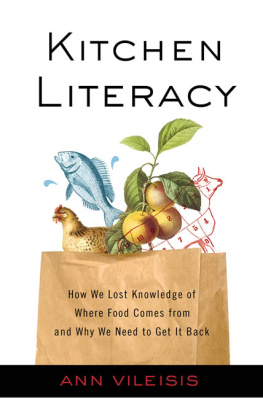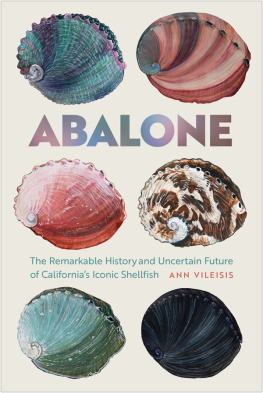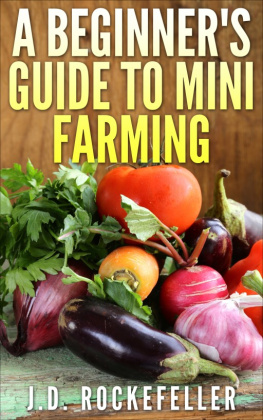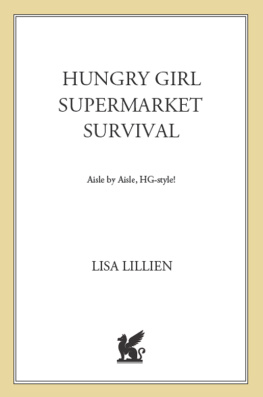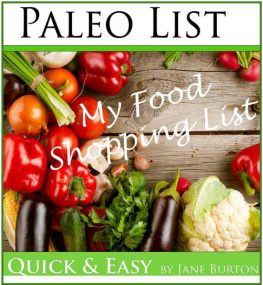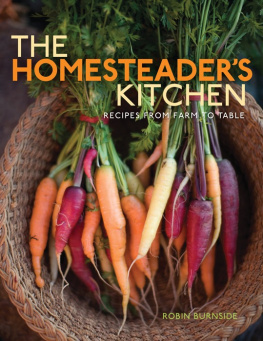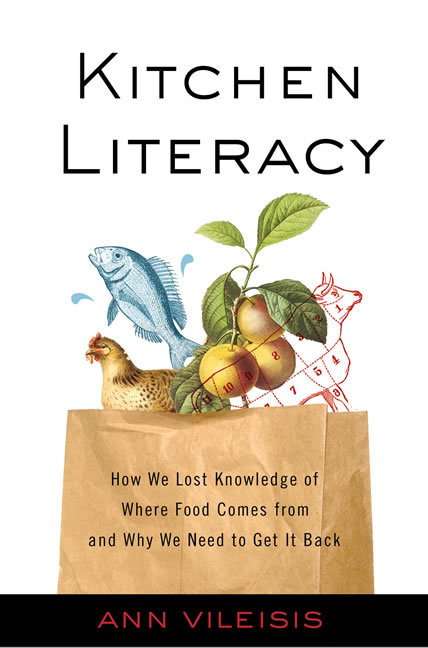All rights reserved under International and Pan-American Copyright Conventions. No part of this book may be reproduced in any form or by any means without permission in writing from the publisher: Island Press, 1718 Connecticut Ave., NW, Suite 300 Washington, DC 20009.
SHEARWATER BOOKS is a trademark of The Center for Resource Economics.
Know thyself.
SOCRATES
You are what you eat.
INTRODUCTION
Missing Stories
Has it ever occurred to you just how odd it is that we know so little about what we eat? Each day we feast on cereal, bread, salad, soup, chicken, cheese, apples, ice cream, and more. Over the course of our lives, each of us has eaten thousands of different foods. We have tasted their saltiness and sweetness, crunched their crispness, chewed their fleshiness, swallowed them, and incorporated their nutriment into our bones. Yet despite this biologically intimate and everyday physical connection, most of us have little idea where our foods come from, who raised them, and what went into making them.
The absurdity of this situation struck me about ten years ago. The news was rife with stories about how large-scale food production harmed health and the environment: pathogens such as Salmonella and E. coli had become more prevalent in meat and eggs raised under crowded factory-farm conditions; pesticides used to grow foods were contaminating drinking water and harming the health of farmworkers and their children; agricultural chemicals were causing declines in amphibian and bird populations; the cod fishery was collapsing; and the fungicide methyl bromide, used in growing strawberries, was even linked to the erosion of the earth's ozone layer. I began to wonder, were these the berries and eggs that I bought?
As I pushed my shopping cart through the supermarket aisles, questions rose insistently in my mind: How were my eggs raised? Who grew my tomatoes? Where did my fish come from? What about the milk? Thecolorful boxes, cans, and jars that had long appeared familiar and comforting now looked cryptic. Each product, I realized, was the culmination of some hidden story that Iand most of my fellow shoppershad never bothered to consider. Everything we ate had a story, but we didn't know any of them.
I was just starting to grasp that choices I made about what to buy in the supermarket had punch and bitein real places and in real people's lives. Yet when I shopped, these matters had rarely before come to mind. A much narrower set of criteria had always guided my decisions. When picking tomatoes, for example, I'd rather unconsciously considered their appearance, firmness, price, and gratifyingly low caloric content, along with the culinary possibilities of salads or sauces. I'd never considered where the tomatoes had come from, how they were grown, and who did the work of raising them.
Now I started to wonder: Why did I consider some things but not others? Why did I think the way I did about my food? I began to have vague misgivings about what might be happening beyond the scope of my awareness, yet it was difficult to take responsibility when the whole supermarket system seemed to make it almost impossible for meor for any of usto know about the origins of our foods.
I was certainly curious about the stories behind my milk, eggs, and tomatoes, but even more, I was drawn to larger questions: How on earth did we get into the modern situation where we know so little about what we eat and yet regard it as entirely normal? How was it that basic ignorance about foods had become truly the norm in our culture, and what difference has it made?
That's what this book is about.
TO FIND the answers to my questions, I looked to history. By keeping my bead on what America's home cooks have known and not known about their foods, I began to track the gulf in understanding that rapidly grew over time as distance between farms and kitchens widened.
Two hundred years ago, most Americans knew a lot more about what they ate in a direct, firsthand, rooted-in-the-earth way because most had an actual hand in growing a sizable share of their foods. As America wentfrom being a nation of farmers to being one of workers and consumers, growing numbers of city dwellers had to grapple with procuring and cooking foods in new ways. Over the course of only a few generations, we went from knowing particular places and specific stories behind our foods' origins to instead knowing very little in an enormous and anonymous food system.
Those who have written about food history have dropped clues about this cognitive shift as they've chronicled how Americans adopted new products, new nutritional understanding, and new culinary practices in the dynamic social context of urbanization and ethnic diversification. And those who have written trenchant critiques of America's modern agriculture have generally regarded the separation of consumers from producers as a lamentable side effect of a much larger industrial transformation of America's economy, landscape, and culture.
Yet as I began to wrestle with my own food choices, what intrigued me most was the uncharted terrain in between those other histories and analyses. I wanted to home in on how people's thinking had changed as the experience of eating became wholly separate from that of raising and producing foods. How had our mental habits as shoppers, cooks, and eaters evolved toward the out-of-sight, out-of-mind approach that I'd recognized in myself and in others?
In seeking to understand this drift toward indifference, I found an important clue in the work of anthropologist Claude Lvi-Strauss. In the late 1960s, he made the perceptive suggestion that food must be just as good to think in a cultural sense as it is to eat in a nutritional sense.the more shadowy and unappetizing context of our foods' origins was gradually whittled away from the ken of what we know about what we eat. We can also begin to discern some of the far-reaching implications of this subtle but unmistakable drift in our everyday way of thinking.

